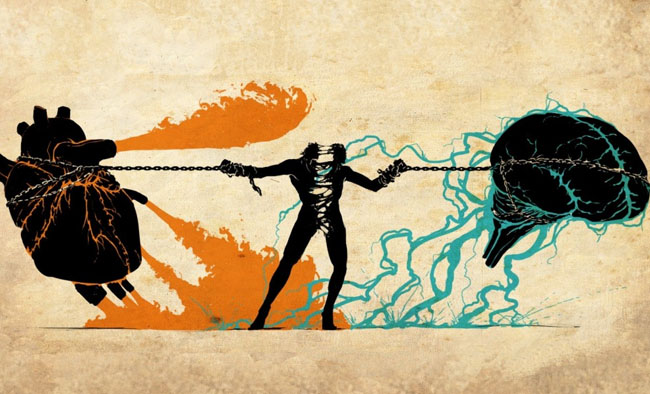The work of a manager includes making decisions (or participating in their making), communicating them to others, and monitoring how they are carried out. A manager can make rational decisions, nonrational decisions and irrational decisions.
The term rational (or logical) is applied to decision making that is consciously analytic, the term nonrational to decision making that is intuitive and judgmental, and the term irrational to decision making and behavior that responds to the emotions or that deviates from action chosen “rationally.”
In rational decision making, goals and alternatives are made explicit, the consequences of pursuing different alternatives are calculated, and these consequences are evaluated in terms of how close they are to the goals.
In nonrational (judgmental) decision making, the response to the need for a decision is usually rapid, too rapid to allow for an orderly sequential analysis of the situation, and the decision maker cannot usually give a veridical account of either the process by which the decision was reached or the grounds for judging it correct. Nevertheless, decision makers may have great confidence in the correctness of their intuitive decisions and are likely to attribute their ability to make them rapidly to their experience.
This nonlogical processes of decision making aren’t magical in any sense. On the contrary, they lie in physiological conditions or factors, or in the physical and social environment, mostly impressed upon us unconsciously or without conscious effort on our part. They also consist of the mass of facts, patterns, concepts, techniques, abstractions, and generally what we call formal knowledge or beliefs, which are impressed upon our minds more or less by conscious effort and study.
Irrational means poorly adapted to goals. Rational and nonrational decisions are thought out with common sense, irrational are not. An irrational decision is a decision that goes against or counter to logic.
Summing-up: Rational decisions are carefully considered and negative outcomes are weighed. Nonrational decisions are based on intuitive judgment. Irrational decisions are made in haste and no outcomes are considered.


I like it. Analysis is good.  I am doing my D.Litt research on Neuro decision making  strategies.
I found the explanations very good and highly enriched. I really understand their differences and would be very useful to d students of management sciences
Well written and clear. Question: why do you link intuition with judgment? Is it possible to be nonrational without being judgmental or without exercising – in a more neutral sense – judgment? I do not understand your linking these two qualities or descriptors.Â
Dear Helen,
I agree with the opinion that the non-rational or non-logical decision making are grounded in knowledge and experiece. Intuition has a source in our previous experiences, and we can consider that and intuitive judgement exists when we make a fast decision based on what is impressed upon our minds by our past experiences and previous studies.
Good decision comes when nonrational turns  in to rational.
Please see my papers at (jyoti satpathy neuro)
This is nonsense. All decisions should be made using rationality. You may not have all the necessary information to make the best decision, but unless you have absolutely zero information to base your decision on, you can always make a rational decision considering the information you are given. This reasoning promoted by this article is seriously faulty. It lacks an adiquite understanding of the definition of the word rational.
Hi Brad, thanks for your comment.
Most of the times (not always) the good decisions are based in rational decision making, but .. did you never decide to do something and you don’t know exactly why did you decide to do it? Sometimes even you can’t believe you decided that option. Sometimes even it seems completely nonsense you decided it. Human beings are very complex creatures ;-))
i liked it……. more helpful to ma presentation today
question : what decision-making that made based on information framed?
thank you sir, this is helpful but I want a precise information about irrational decision making
Pingback: An introduction to the psychology of decision making- UX study on digital products | Full Software Development
Pingback: An introduction to the psychology of decision making- UX study on digital products | UX Blogs
Pingback: An introduction to the psychology of decision making- UX study on digital products – DuCentillion
Thank you. I was trying to figure out the difference between “NONrational” and “IRrational.”
My particular focus was on Jung’s four functions, Thinking and Feeling (Rational) + Sense and Intuiton (“nonrational” and/or “irrational” terms that had been used).
i found explanation very good and well understandable, it help me to know well about organisation behaviour in decision making models.
NONrational and common sense implies to me the reasoning lacks the words, the person lacks the ability to share. I would not pick this word to represent it. but I do not have a better word, beyond possibly intuitive.
Great article, thanks for the clarity!
The analysis is superb, keep up the good work
Pingback: The Scorched Earth Mental Model: Avoiding Self-Destructive Decision-Making - The Freedom Endeavour